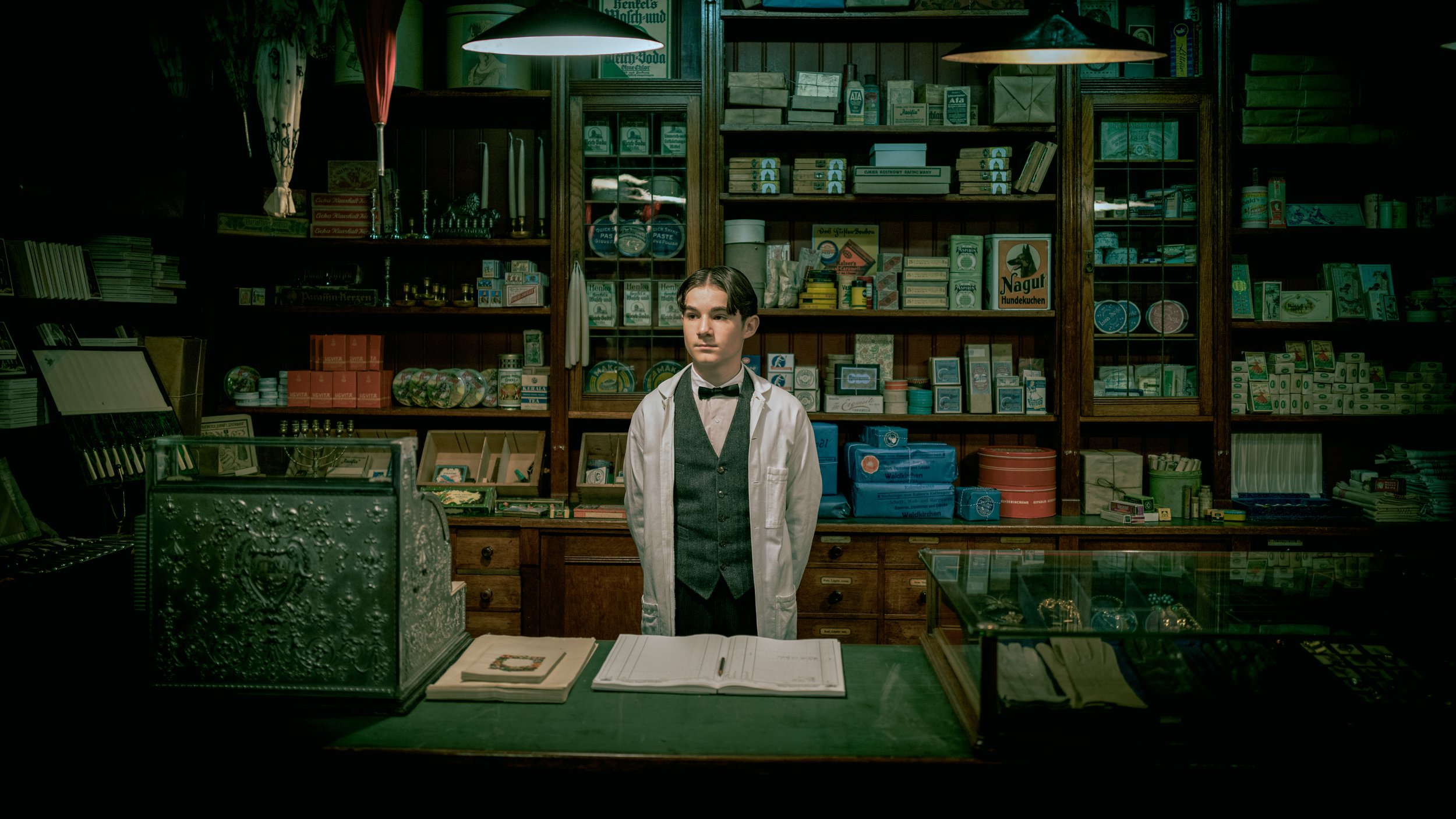ChaiFlicks’ Kafka is a Breathtaking Journey into the Work of a Literary Genius
Photo courtesy of ChaiFlicks
ChaiFlick’s new six-part biopic Kafka may be the most beautiful Jewish series I’ve ever seen.
Set primarily in Prague and Berlin in the early 1900s, the series follows the life of Franz Kafka through the lens of his most important relationships. The show opens with Max Brod, Kafka’s best friend, escaping the Nazis and choosing to leave behind his personal belongings in order to make space for Kafka's unpublished work. (Work Kafka had willed him to burn.)
Directed by David Schalko and starring Joel Basman as Kafka, the series was originally produced by the German-Austrian studio SuperFilm, and is now available on ChaiFlicks, a premire Jewish streaming service.
Photo courtesy of ChaiFlicks
Kafka wouldn’t have thought his story merited being told, but if it was to be shared, I believe this is how he would have wanted it: jarring, stunning, and introspective. Throughout the series, the narrator literally questions if they are telling the story right, as it jumps to alternative openings and endings.
This insecurity is laughable when compared to the impressive work of art that was created –both in terms of Kafka’s literary world, and the show’s brilliant production value. The meticulous attention to detail from the creative team extends from the opening credits, which uses Kafka’s signature and his drawings, to the nuanced and joyful portrayal of his character.
Kafka is a triumph that does justice to the literary giant’s legacy.
Franz emerges from the show as an incredibly likable person –he is eccentric, self-deprecating, thoughtful, and honest.For most of the show Kafka only eats walnuts. We see him on dates, at business meetings, with his family, always with only a plate of nuts, chewing each nut exactly 40 times, the “healthiest” method. We see him getting his first job, unable to control his laughter when asked to participate in the niceties expected of new employees. He tries to make time for a new love, while balancing all his other commitments, when she finally yells, “Franz, your only love is the train schedule!”
Photo courtesy of ChaiFlicks
The line between Kafka’s life and his art can be hard to differentiate, in some of the most visually compelling scenes I’ve seen on television. Throughout the series, reality and Kafka’s imagination are blurred, like when Kafka reaches under the counter at his father’s shop, and offers a giant metal snail to the waiting customer. Each episode is a masterclass in visual storytelling, blending the ordinary with the extraordinary in ways that are surprising and beautiful. The depiction of "The Castle," Kafka’s final work, is a depressing story of a man that dies unable to fulfill his mission, and is a breathtaking visual metaphor of Kafka’s final moments and the insurmountable nature of his ambitions and fears.
“Kafka wouldn’t have thought his story merited being told, but if it was to be shared, I believe this is how he would have wanted it: jarring, stunning, and introspective.”
Each episode focuses on, and is named after, a relationship pivotal to who Kafka was, and meaningfully depicts how these relationships influenced his life and work. On a fitful night after he meets his first fiance, Felice Bauer, he completes his first piece of writing. Months later, when she confronts him, asking why he is unwilling to follow through with their betrothal, he writes “The Trial”. "Metamorphosis," arguably Kafka's most famous work, is a response to Kafka introducing a new friend, a yiddish actor, to his father’s distaste.
Franz’s Jewishness is constantly in the background. He promises two fiances he will travel with them to British Palestine, and suggests it will be the place he writes his greatest work. He loves Yiddish theater, even as his friends deride it, and his first public talk is on the subject of the Yiddish language. Though he hesitates to call himself a Zionist, he learns Hebrew, and while the show is primarily in German, there are conversations where Yiddish and Hebrew are interspersed.
Photo courtesy of ChaiFlicks
I must admit, I haven’t read any of Kafka's works before watching this series, and it seems likely I missed some of the creators' commentary on their themes. It is for that reason, among others, that I intend to embark on a rewatch.
For anyone passionate about Jewish literature, the creative process, or simply great storytelling and beautiful imagery, this series is an absolute must-watch. Kafka is a triumph that does justice to the literary giant’s legacy.



